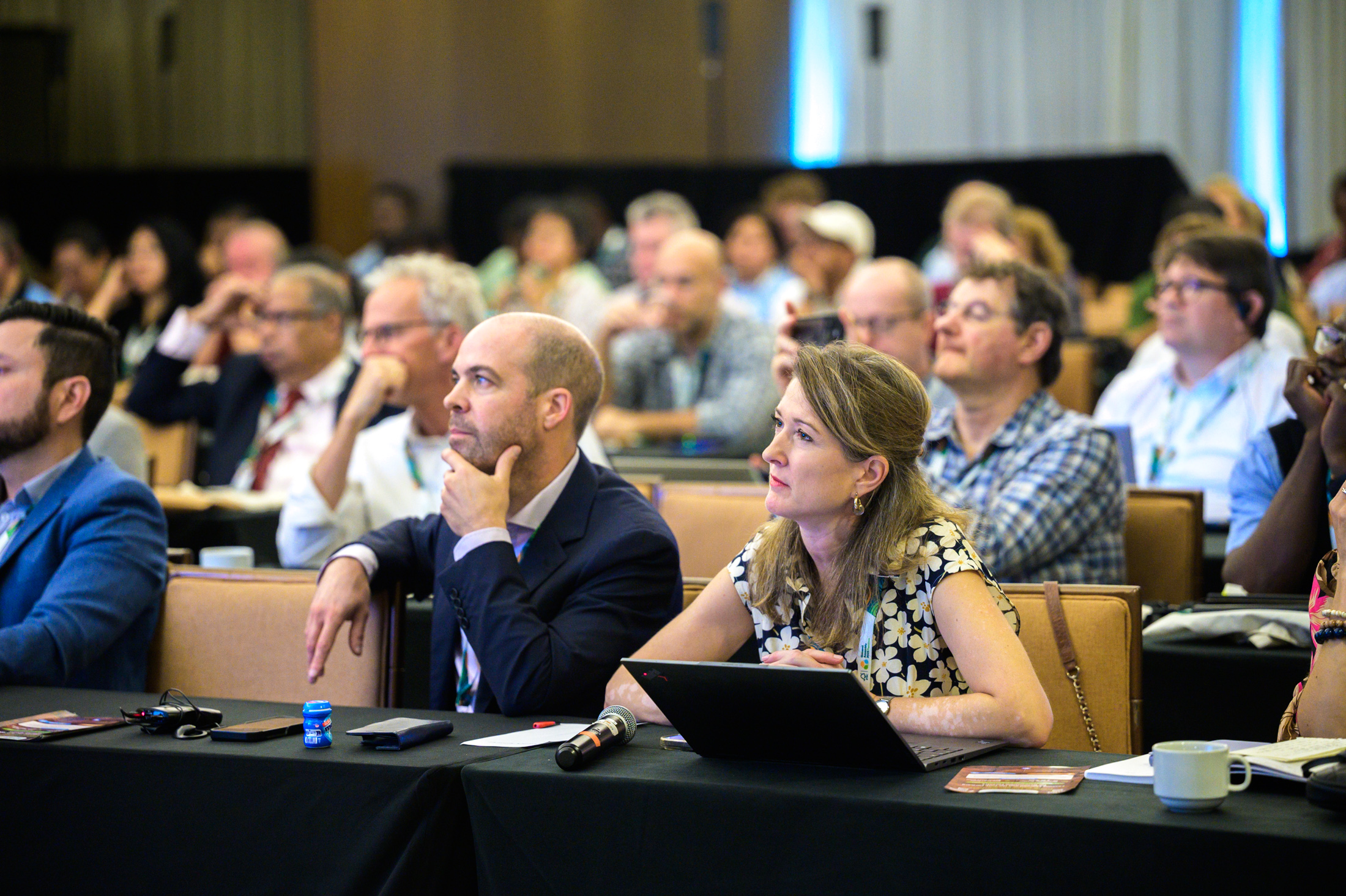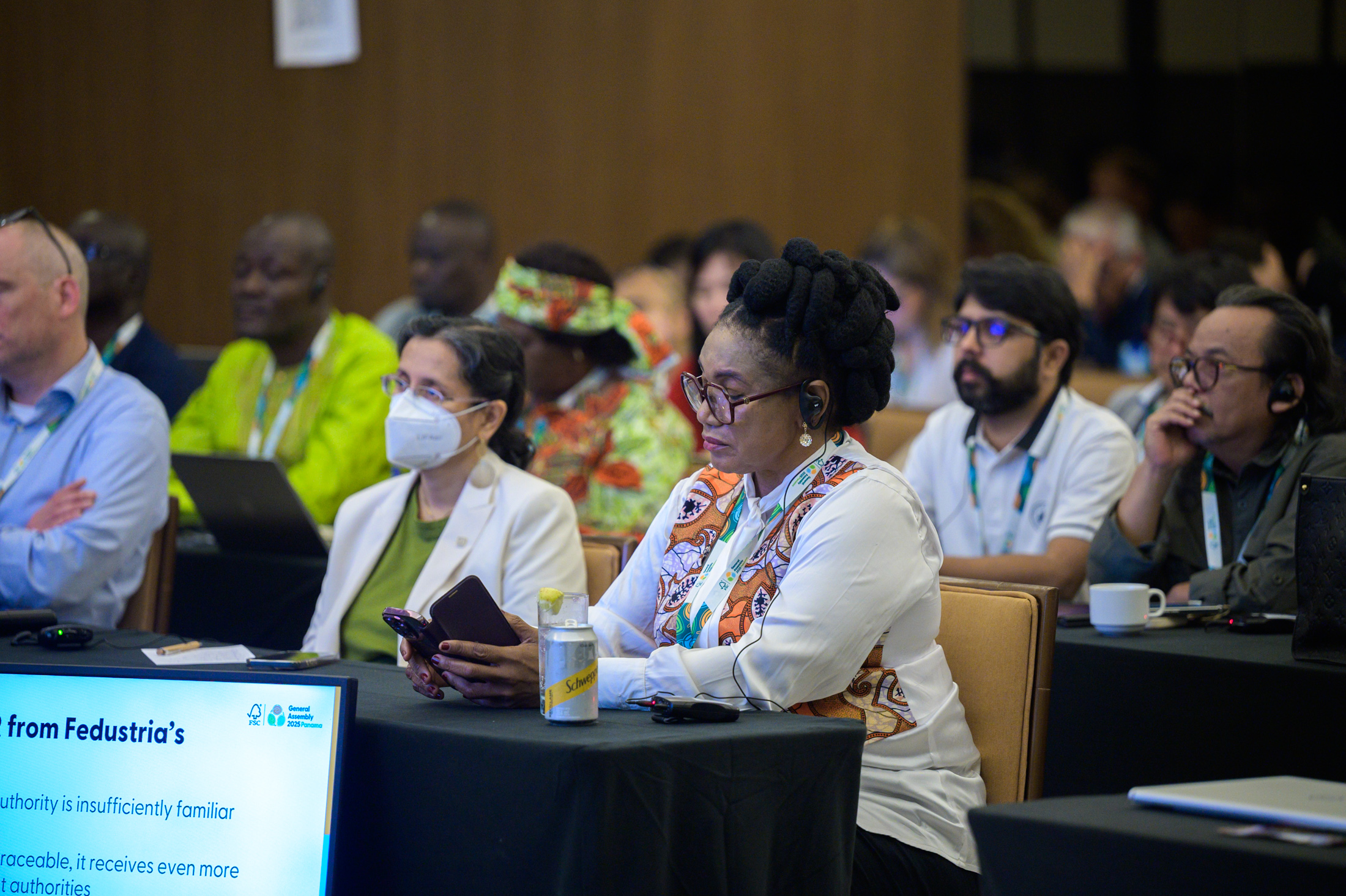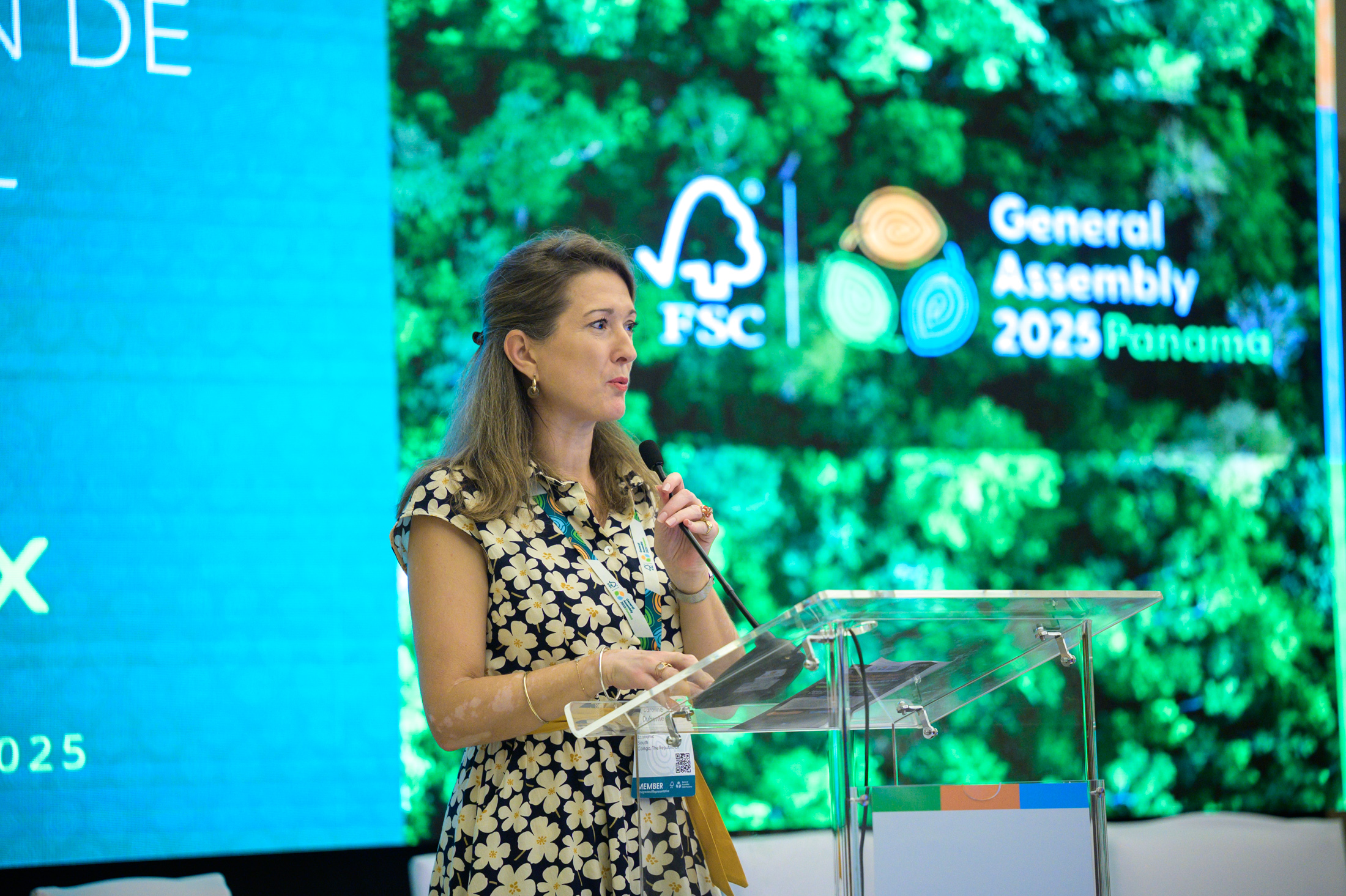In a packed room at the FSC General Assembly 2025 in Panama, the session “Tropical Timber Markets and Value Chains: Lessons Learned and the Path Forward for Responsible Forestry” held on 29 October 2025 at Westin Playa Bonita, brought together voices from across continents to confront a difficult truth: despite decades of progress in sustainable forest management, certified tropical timber continues to face limited market demand.
Co-organized by ATIBT (International Tropical Timber Technical Association) and the Rainforest Alliance, the event provided a platform for open, constructive dialogue between producers, buyers, NGOs, and policymakers on how to strengthen the link between sustainability and market value. The session was facilitated by Caroline Duhesme (ATIBT) and moderated by Richard Donovan, Independent Forest Advisor and a founding member of FSC.

Setting the scene: a call for market recognition
Opening the discussion, participants acknowledged that sustainable forest management cannot exist without viable markets.
Her Excellency Dr Rosalie Matondo, Minister of Forest Economy of the Republic of Congo, highlighted the critical importance of sustainable forestry for producer countries in the Congo Basin. Under her stewardship, more than 3.5 million hectares of Congolese forest are now certified under FSC standards, reflecting strong governmental commitment to responsible forest management. In 2025, Congo expanded its FSC-certified area by over 500,000 hectares through the new certification of Mokabi–Rougier, thereby positioning itself as the leading African country with the largest FSC-certified forest area—3.6 million hectares out of Africa’s total 11.2 million hectares certified.
Congo’s 2020 forestry code formally recognises FSC certification, and approximately half of its forest concessions with management plans are FSC-certified. Despite this robust policy framework and sustainability commitment, the market for sustainably sourced tropical timber is narrowing. Minister Matondo noted that “the lack of market return for highly certified wood is discouraging,” and called on FSC and partners to assist in converting environmental and social standards into tangible economic benefits. She further invited collaboration on advancing plantation certification and valuing ecosystem services, including carbon and biodiversity, as part of Congo’s afforestation and reforestation strategy aimed at alleviating pressure on natural forests through expansion of plantations.
Market perspectives: challenges and opportunities
Three presentations offered a panoramic view of tropical timber markets from Europe, Latin America, and Africa:
Ingrid Hontis (Fedustria, Belgium) outlined the growing regulatory pressure on European importers, including the upcoming EU Deforestation Regulation (EUDR). She noted that while certification remains a key signal of responsibility, it is not always recognized by authorities conducting due diligence. “Certification should be a facilitator,” she explained, “not an administrative burden.” She also warned that overregulation risks driving companies away from wood altogether, in favor of less sustainable materials.
- Garrett Siegers (Whole Forest, Ecuador) shared an innovative business model that integrates carbon and biodiversity outcomes directly into tropical timber products. Working in Ecuador’s Chocó forest, his company produces carbon-negative wood products by preventing deforestation and quantifying avoided emissions. “Our goal is to make the forest more valuable standing than cut,” he said, highlighting FSC’s role in connecting certified enterprises with carbon and ecosystem service markets.
Deryck Martins (AIMEX, Brazil) presented the Brazilian experience, where 1.4 million hectares of forest are FSC-certified. Despite strong legal frameworks and advanced traceability systems, Brazil’s share of global forest product exports remains small. He stressed the need for better communication on the social and ecological benefits of certified tropical timber.
Panel dialogue: from compliance to impact
 The panel discussion that followed explored how FSC and its partners can better connect sustainability to market value.
The panel discussion that followed explored how FSC and its partners can better connect sustainability to market value.
Vincent Istace (CIB OlamAgri, Congo) urged FSC to focus on “less complexity for more credibility, less compliance for more impact.” He emphasized that certification must translate into tangible economic advantages and proposed positioning FSC as a “currency of trust” for accessing climate finance and carbon markets.
Gijs Breukink (WWF) called for stronger governance frameworks to ensure fair competition between certified and non-certified wood. He advocated for a multi-use approach that values timber and non-timber forest products alike, and welcomed FSC’s Verified Impact initiative as a step toward measurable, science-based sustainability outcomes.
José Román Carrera (Rainforest Alliance) highlighted the challenges faced by community forest enterprises (CFEs) in accessing finance and ecosystem service revenues. He called for mechanisms that ensure REDD+ and carbon credits reach the communities managing certified forests. “Without equitable financial flows,” he warned, “sustainability will remain out of reach for those who make it possible.”
Subhra Bhattacharjee (FSC Director General) responded by reaffirming FSC’s commitment to “turning certification into access.” She presented new tools, including the FSC Ecosystem Services Registry and FSC Track, which aim to help certified companies demonstrate compliance with the EUDR and attract investment. She also emphasized FSC’s mission to bridge the gap between policy and practice: “Our goal is to make sure certified forests are rewarded in the market—not punished by complexity.”
A collective commitment to the future
The discussion closed with a sense of renewed purpose. The session reaffirmed that certification alone is not enough: sustainable tropical forestry must also be recognized and valued by the market.
As the panel concluded, Minister Matondo encapsulated the dilemma confronting many tropical countries: the challenge of balancing conservation with development. “Forests will only remain standing if they provide greater value for the livelihoods of the communities that depend on and steward them,” she emphasized. She further noted that people cannot safeguard forests rich in minerals and oil when facing hunger. For forests to remain protected, they must support the well-being of local populations.
FSC, industry, governments, and civil society all share a common challenge—to build a future where sustainable tropical timber is not only the ethical choice but also the economically viable one.
